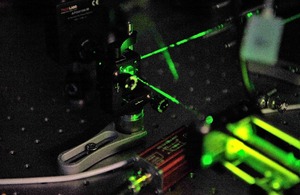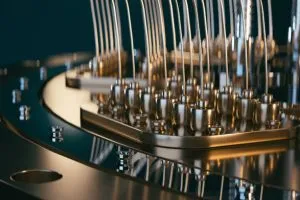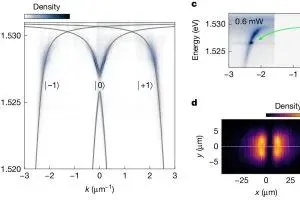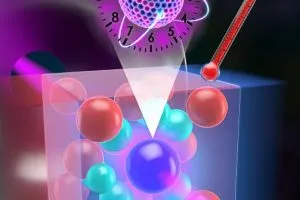GPS can be disrupted or blocked by adversaries and the new system could help conduct more secure and precise operations, said the government agency. The clock – using quantum technology – records time with the precision of losing less than one second over billions of years.
The ‘Demonstration of Advanced Timing Apparatus’ (DATA) is part of a planned series of experiments which will help understand the performance and limitations of quantum clocks, with potential benefits for military and national infrastructure resilience.
Atomic clock
It is the first device of its kind to be built in the UK, said Dstl. And it may be deployable on military operations within the next five years. It is also the first time that Dstl has tested a UK-built optical atomic clock outside of a laboratory.
“This first trial of advanced atomic clock represents a significant achievement in the UK’s quantum technology capabilities,” said Dstl’s Chief Executive, Paul Hollinshead. “The data gathered will not only shape future Defence effort but is also a signal to industry and academia that we are serious about exploring quantum technologies for secure and resilient operational advantage.”
The trial involved Infleqtion (UK), Aquark Technologies, HCD Research and Imperial College London. Additionally, there is in-house technology developed at Dstl’s own quantum laboratory. The prototype frequency standards were tested in collaboration with the Royal Navy and the Army Futures team at the BattleLab.
The Dstl expects that further research enable both mass manufacturing and miniaturisation of the technology. Potentially, this could widen the range of applications, and involve use by military vehicles and aircraft.
Quantum clocks
As well as enable more precise and independent navigation systems, quantum clocks could secure communications systems. For example, encrypted military networks, which depend on highly synchronised timekeeping.
They could also improve accuracy of advanced weapon systems, like guided missiles. These rely on accurate timing to calculate trajectories and coordinate attacks.
Finally, they offer advantages in timing-critical operations, for example cyber warfare, where milliseconds can make a difference.
“The Navy has been looking at quantum technologies for a number of years and it is exciting to see that the challenges of physics and engineering in this area are now no longer a scientific concept, but is now reaching the cusp of reality,” said Commander Matt Steele, the Future Technology Officer for the Royal Navy’s Office of the Chief Technical Officer.
“In the next few years, the ability to operate effectively, to survive, and to navigate and also to remain lethal with the use of Quantum alongside GPS will secure operational advantage.”
The UK’s Ministry of Defence, via Dstl, has invested £28 million in the quantum technologies.
Image: UK government
See also: Dstl drone technology seeks to defuse threat of mined areas
 Electronics Weekly
Electronics Weekly




